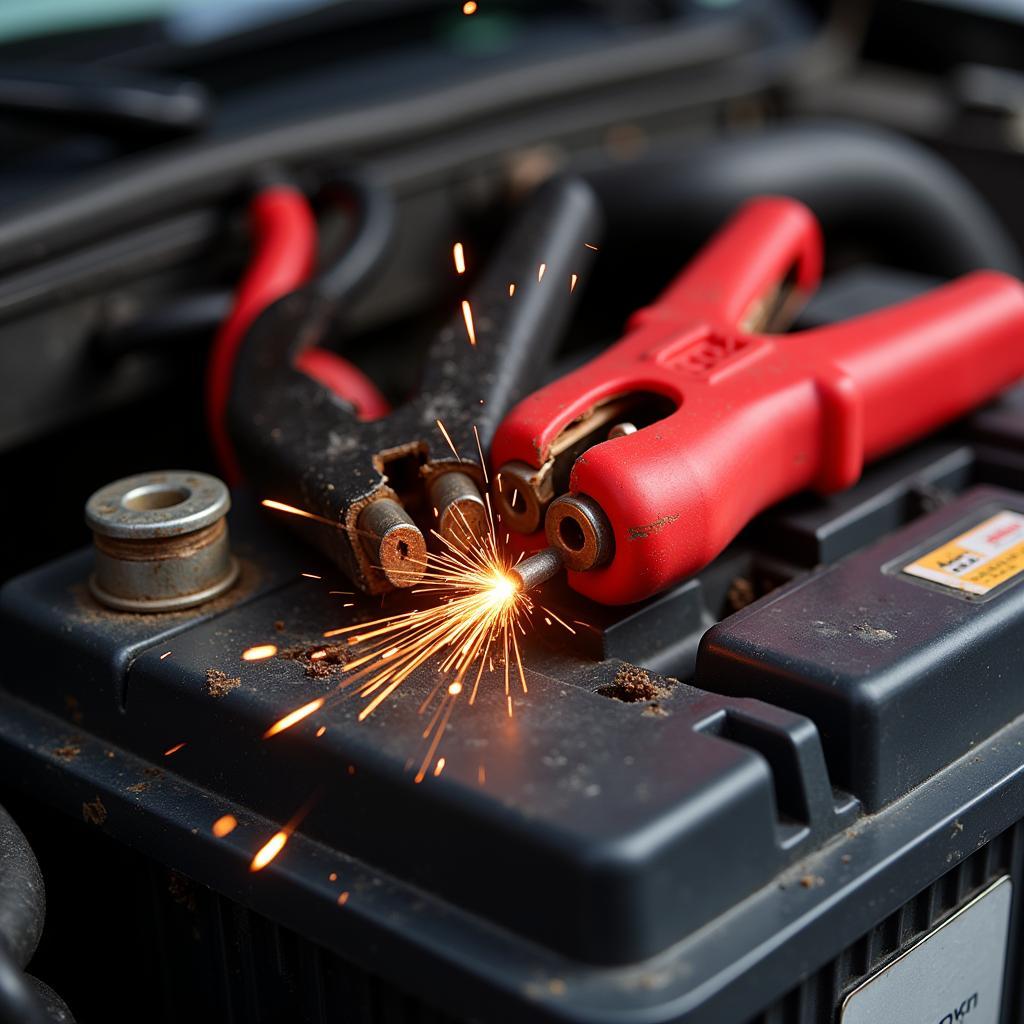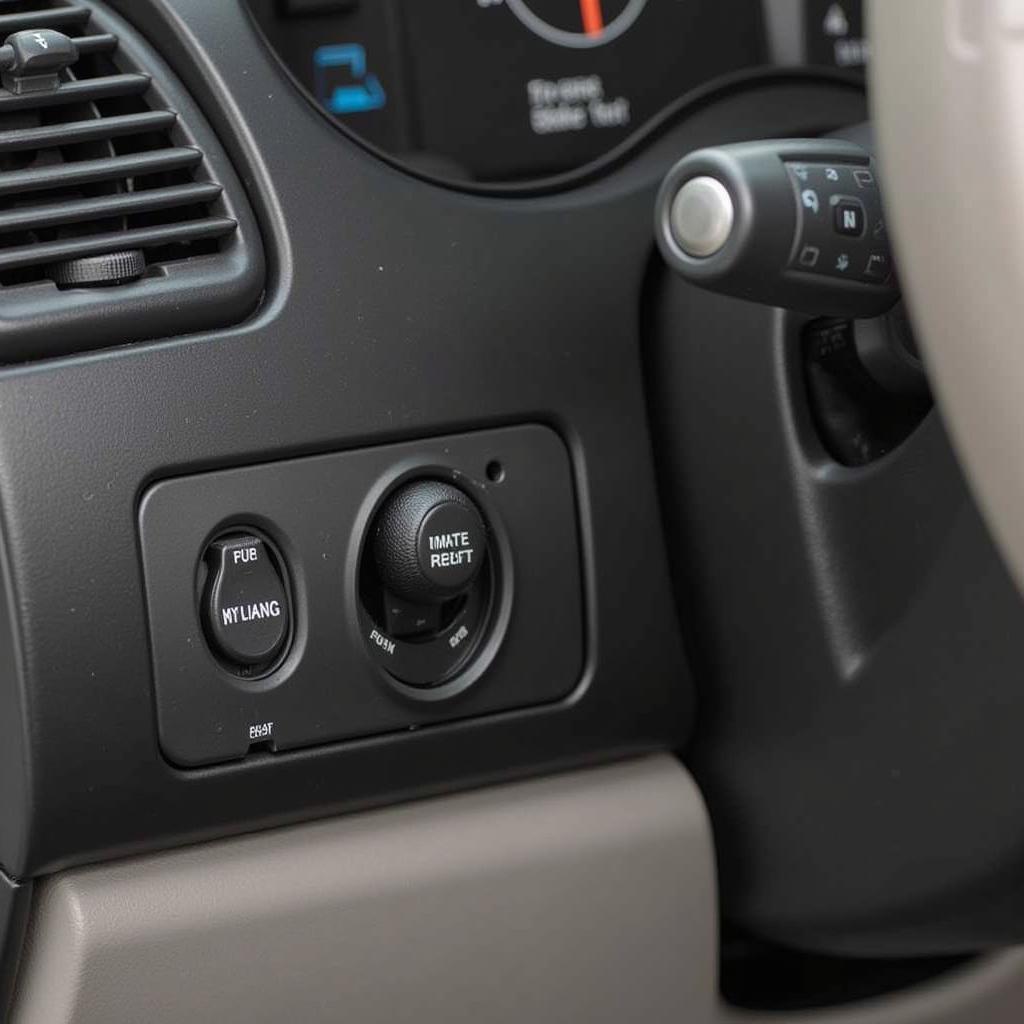Your car won’t start after a jump? You’re not alone. This frustrating situation is surprisingly common. This guide will walk you through the most common causes and provide solutions to get you back on the road. battery warning sign in car could be an indicator of the issue.
Common Reasons Your Car Won’t Start After a Jump Start
Several factors can contribute to a car refusing to start even after a jump. Let’s break them down:
Dead Battery
A completely dead battery is the most obvious culprit. While a jump start might temporarily revive the engine, a severely damaged battery won’t hold a charge.
Faulty Alternator
If your alternator is malfunctioning, it won’t recharge the battery, even with a jump. car battery 11 volts wont start can also indicate issues beyond just a dead battery, often pointing to alternator problems. A bad alternator can leave you stranded even after a successful jump.
Bad Starter
A faulty starter might initially respond to the jump start, but if it’s failing, it won’t continue to crank the engine. car wont start but is clicking is a common symptom of a bad starter, as it may still have enough power for a clicking sound, but not enough to turn over the engine.
Corroded or Loose Battery Cables
Corroded or loose battery cables can hinder the flow of power, making a jump start ineffective. Ensure the connections are clean and tight.
Fuel System Issues
Sometimes, the problem isn’t electrical at all. A clogged fuel filter or a failing fuel pump can prevent the engine from starting.
 Car Battery Jump Start Failure
Car Battery Jump Start Failure
What to Do When Your Car Won’t Start After a Jump
Here’s a step-by-step guide to troubleshoot the problem:
- Check the Battery Connections: Make sure the battery terminals are clean and the cables are tightly connected. Corrosion can prevent a proper connection.
- Test the Battery: Use a multimeter to test the battery voltage. A reading of 12.6 volts or higher indicates a healthy battery. If significantly lower, the battery is likely dead and needs replacement. sign of low battery in car are varied, and include dimming headlights and slow cranking.
- Check the Alternator: With the engine running (if it starts after another jump attempt), check the battery voltage again. It should be around 14 volts. A lower reading suggests a failing alternator.
- Inspect the Starter: If you hear a clicking sound when you try to start the car, the starter may be faulty.
- Examine the Fuel System: If you don’t hear the engine attempting to turn over at all, the problem might lie within the fuel system. Check for any obvious fuel leaks or blockages.
“A common mistake people make is assuming a jump start is a permanent fix,” says automotive expert, John Smith, ASE Certified Master Technician. “If your car won’t start after a jump, it indicates a deeper issue that needs attention.”
Still Stranded? Advanced Diagnostics and Remote Solutions
If the above steps don’t solve the problem, you might need more advanced diagnostic tools. Modern cars are heavily reliant on software and electronic control units (ECUs). Issues with these systems can lead to starting problems. car still wont start after jumping often indicates deeper underlying problems that require specialized diagnostic tools to identify.
Remote diagnostics and software programming are becoming increasingly valuable for these scenarios. These services can remotely identify and sometimes even fix software-related starting issues without you needing to visit a mechanic.
“Remote diagnostics can save car owners valuable time and money, especially in complex electrical and software-related issues,” states Dr. Emily Carter, automotive electrical engineer.
Conclusion
A car that won’t start after a jump is more than just an inconvenience; it’s a sign of an underlying problem. By following these steps, you can diagnose the issue and get your car back on the road. Remember to check the battery, alternator, starter, and fuel system. If the problem persists, consider professional diagnostics, particularly remote diagnostics and programming which can provide efficient solutions for car wont start after jump scenarios.
FAQ
- Can a jump start damage my car? While generally safe, incorrect jump starting can damage the car’s electrical system.
- How long should a jump start take? Typically, a few minutes are enough to get the engine running.
- Why does my car need a jump start repeatedly? This likely indicates a failing battery or alternator.
- Is it safe to drive my car after a jump start if the problem persists? It’s best to diagnose the underlying issue before driving extensively.
- How can I prevent needing a jump start in the future? Regular battery maintenance, including cleaning the terminals and checking the voltage, can help.
- Can extreme cold affect my car’s ability to start? Yes, cold temperatures can weaken the battery’s performance.
- What should I do if I suspect a fuel system issue? Consult a qualified mechanic for a proper diagnosis and repair.

